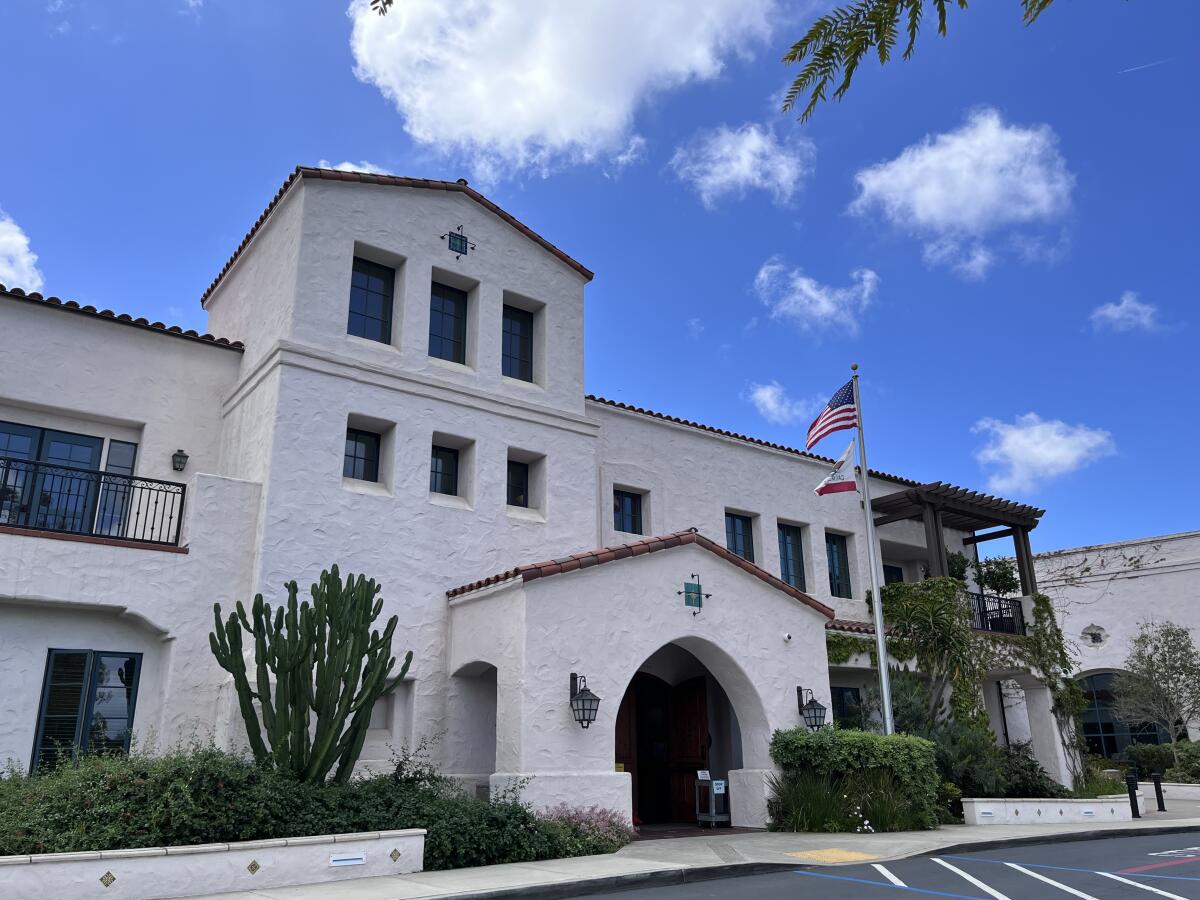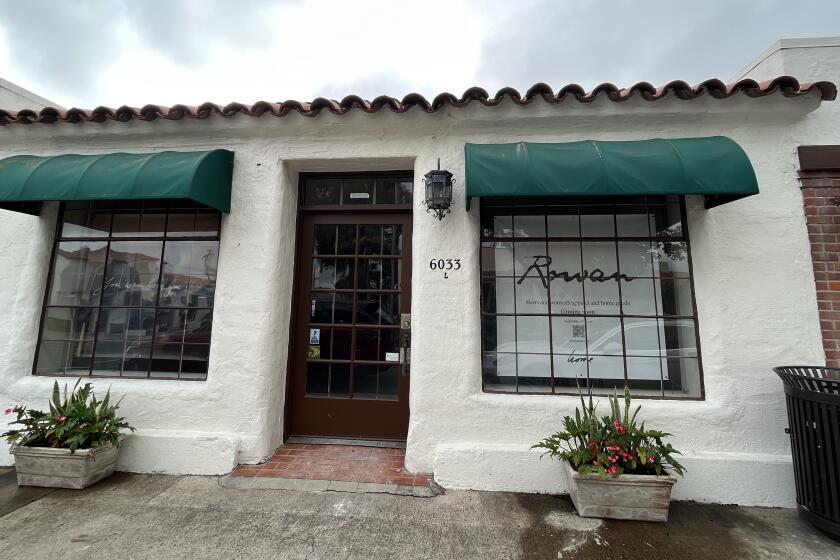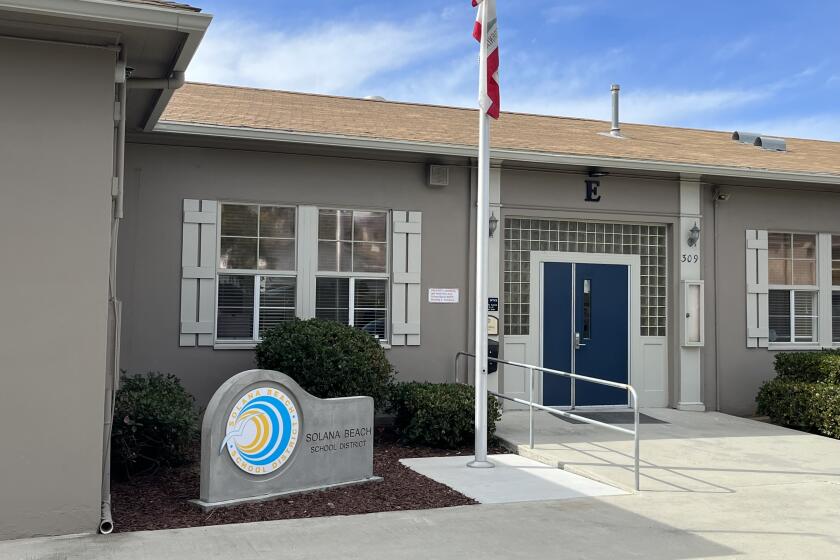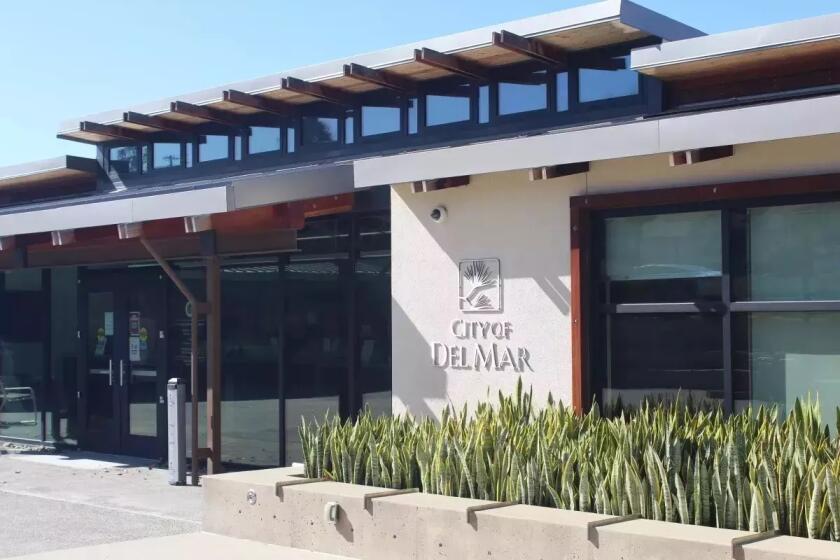Rancho Santa Fe School District still faces unknowns serving Universal Meals

With the start of the school year, California became the first state in the country to implement a statewide Universal Meals Program, providing free breakfast and lunch for all children every school day. Per the new law passed last year, all students may request breakfast and lunch at no charge, regardless of their eligibility for free or reduced-price meals.
For small districts like the Rancho Santa Fe School District, implementing Universal Meals has been a challenge as the one-school district has no kitchen, no nutrition department, no food service staff and no equipment to warm or serve meals—they only recently got a cooler to effectively store all of the milk they are required to serve.
With so many unknowns about Universal Meals over the summer, the district chose to start the school year paying out of pocket for student breakfasts and lunches. Evaluating where they are a few weeks in, the school board is now looking to bring on a food service consultant as they will pursue reimbursement from the state to implement the mandatory program.
The board heard from one consultant applicant at its Sept. 15 meeting and a contract is expected to be brought before the board for approval at its October meeting.
With the state reimbursement option, the district will need to acquire a health permit and become an approved School Food Authority (SFA), an extensive three-to-four-month application process. The food service consultant will handle the SFA application to the state, help with the point of sale procurement process, staff training and recommend a sustainable plan. The district would need to follow strict National School Lunch Program requirements regarding nutrition, which impacts all food served at the school—for example, the student council’s snack cart must meet Smart Snack requirements and pizza parties and bake sales may no longer be allowed on campus.
The district will also need to hire additional staff for food distribution and record-keeping.
Neighboring Del Mar Union faced similar challenges to Rancho Santa Fe as they also do not have a central kitchen (one is scheduled to be complete by January at their new school Pacific Sky). They partnered with outside vendor One Kitchen Collaborative and set up “quick cafes” for food service at each of their seven school sites. Every day students have two options for breakfast and lunch, one option is always vegan and allergy-friendly (dairy and gluten free).
In the Solana Beach School District, which has its own nutrition department, fresh fruit is provided at breakfast with offerings like hard-boiled eggs, bagels, yogurt and granola. They offer two free lunch options every day, including a featured salad of the day.
During public comment at the board’s Sept. 15 meeting, parent Jennifer Valentine said that compared to surrounding school districts, Rancho Santa Fe has not done right by the law: “You’ve decided not to take funds, to keep control and not have to abide by requirements per your view,” she said.
Valentine said an email sent to parents at the start of the school year seemed to dissuade parents from participating in the free meals as it would affect the school’s budget. She said parents have concerns that there has been a lack of communication and that they are stressed about the quality and amount of food that is being served to kids.
“It should be a real meal that the state reimburses,” Valentine said. ”The kids have had the same food for a month, every week. That’s just cruel. It seems as if the admin is doing the minimum for the kids or in this case less…(The Universal Meal program) has been made deplorable to minimize participation and you’ve succeeded very well.”
Currently, at Rowe, breakfast is served in the courtyard from 7:30-7:45 a.m. with milk, juice and granola bars. As of Sept. 6, they started introducing options like cereal and muffins. Allison Oppeltz, the district’s director of finance, said participation varies depending on the menu item and the “friend factor” of children seeing other kids getting food but in the first two weeks of school they averaged 11 students a day. When cereal was added, they averaged 23 students opting for breakfast with the highest number served being 45.
Oppletz said with state reimbursement the district would be able to have more variety for breakfast and likely have more participation.
For lunch, students must pre-order the free meals with the district’s vendor Ki’s. In the first few weeks of school, they have had 62 to 93 students participate in the free meals daily. The sample menu has included one daily option, meals such as turkey pasta, bean and cheese burritos, beef broccoli teriyaki bowls, baked potatoes and ham sandwiches. The weekly meals do not change, although two more unpopular meals were changed at the district’s request. The hope is for the October menu to include more variety, Oppeltz said.
Paid choices from Ki’s are also available for Rowe students. A sample of a recent school day showed there were 143 meals purchased, including 22 different meal options picked by parents, 60 drinks, 20 smoothies and 42 snacks.
Oppeltz said there are still a lot of unknowns with the program which is where a consultant will be beneficial.
The state’s reimbursement rate is $4.45 for lunch (vendors have averaged $4.85 to $6) and Oppeltz estimates annual food costs of $10,800 to $41,850. The district will also need to hire an additional staff member for food service and with a food consultant for the first year, the total cost to the district could be about $80,800 to $111,850.
Ki’s has told the district they are not interested in participating in a request for proposals if the district takes the state reimbursement route so in that case, Rancho Santa Fe would need to find a new food vendor.
RSF School Board President Jee Manghani and Trustee Rosemarie Rohatgi have always supported the reimbursement route and the other board members are coming around. At the board’s August meeting, Trustee Kali Kim said the district should embrace the program and have it as an asset at Rowe to provide a great breakfast and lunch for all students. Her biggest concern is food waste and she is hoping that the school can come up with ways to reduce waste such as educating kids about not taking food if it’s not wanted or possibly involving the school garden by composting leftover food.
Trustee Annette Ross said she was interested in surveying parents about the program, as was suggested by Valentine during public comment. Overall, Ross was still not sold on the reimbursement option and all its requirements.
“Dealing with the state is a nightmare. Could we do a better job for the kids with us paying for it? I know it’s a lot but it’s crazy and who really knows what their intentions are?” Ross said. “I have no faith in the state to do anything right or well or honestly or in the best interest of our children.”
Get the RSF Review weekly in your inbox
Latest news from Rancho Santa Fe every Thursday for free
You may occasionally receive promotional content from the Rancho Santa Fe Review.









